Blogging is one of the most popular online content activities. There are millions of bloggers around the world who regularly write and share content on their blogs or company websites. If you’re interested in becoming a professional blogger, you need to stand out from the crowd with an impressive resume. With so many bloggers competing for attention and opportunities, you must present yourself as a serious candidate with your resume and cover letter. A well-written blog writer’s resume can be the difference between getting an interview and not. To successfully land your dream job as a blogger, you must have exceptional examples of your work, including your blog writer’s resume. Whether you plan to use it for applying for jobs or networking with potential employers, a well-written resume is essential for any job seeker who wants to make an excellent first impression. Please keep reading for more information about creating your blog writer resume and tips on how to do it effectively.
Blog Writer Resume Example

Download This Blog Writer Resume as PDF
Social Media Manager Resume Example
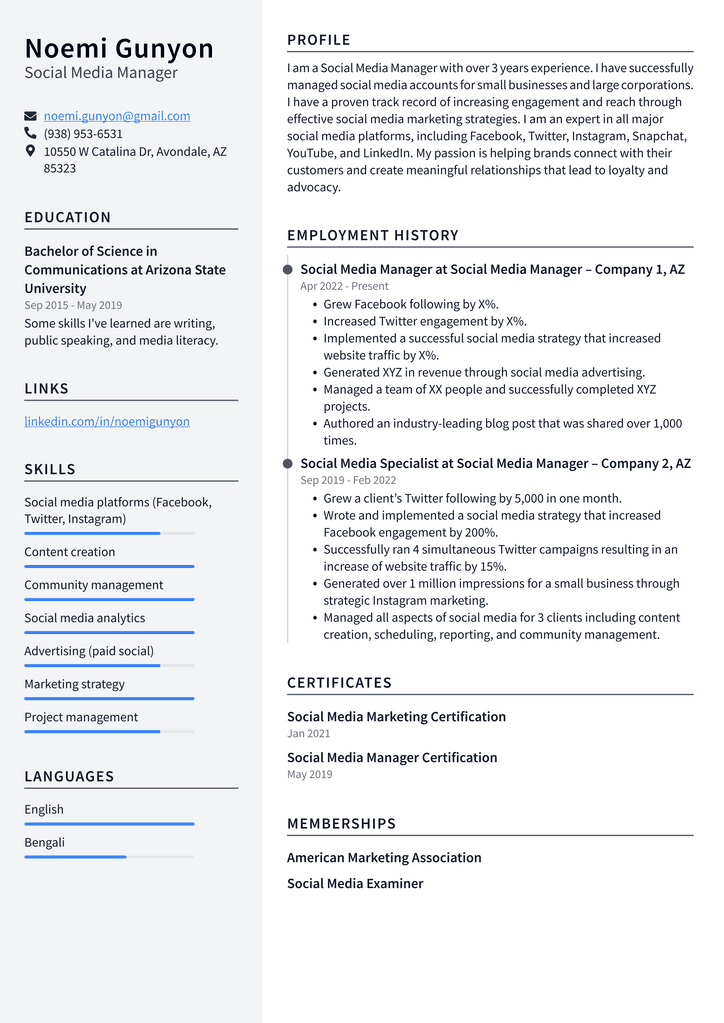
Download This Social Media Manager Resume as PDF
Content Writer Resume Example
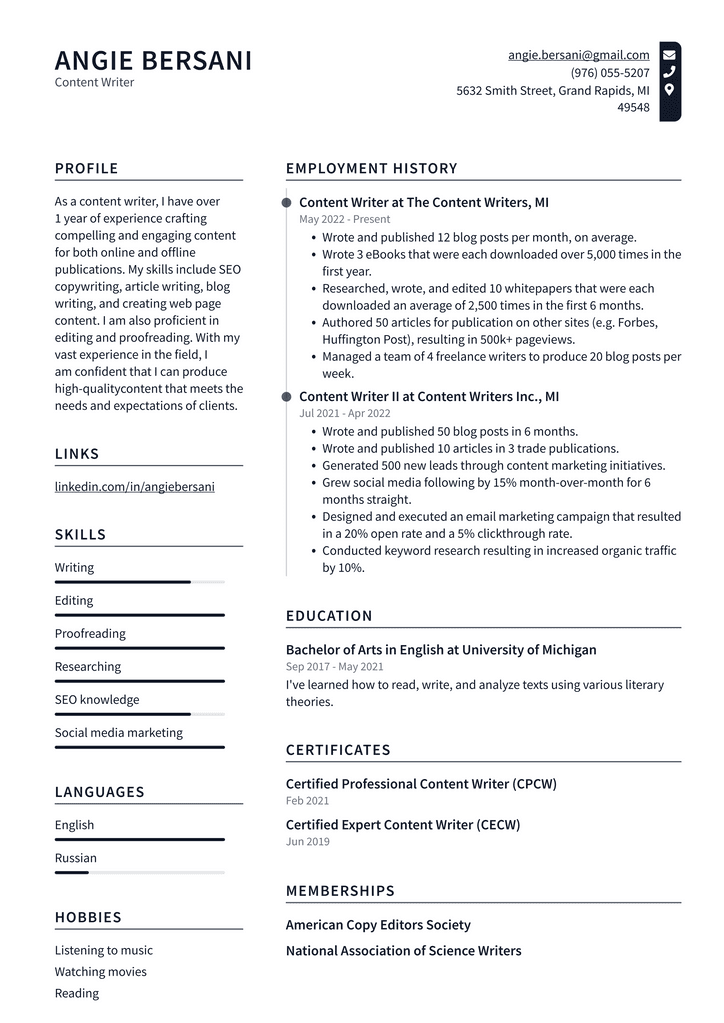
Download This Content Writer Resume as PDF
Copywriter Resume Example
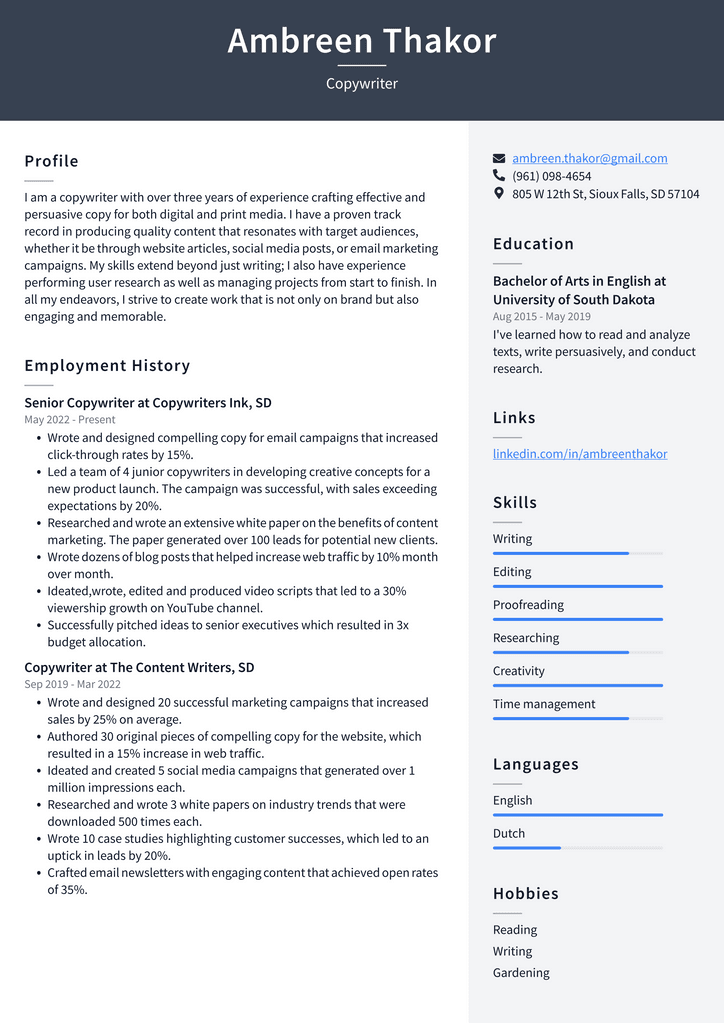
Download This Copywriter Resume as PDF
Public Relations Specialist Resume Example
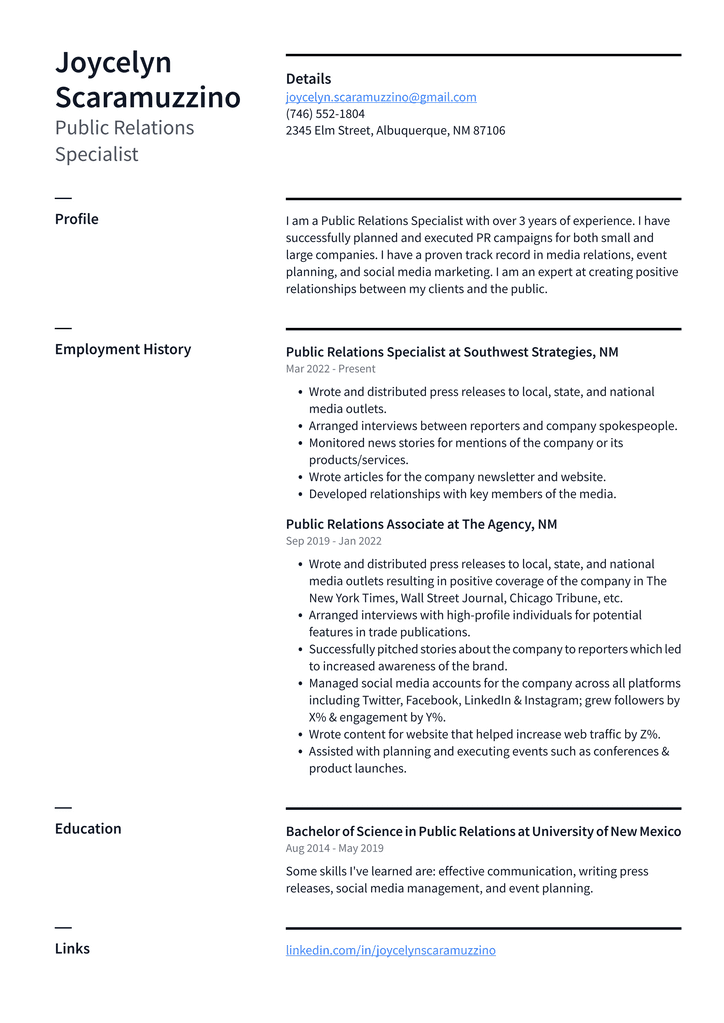
Download This Public Relations Specialist Resume as PDF
SEO Specialist Resume Example
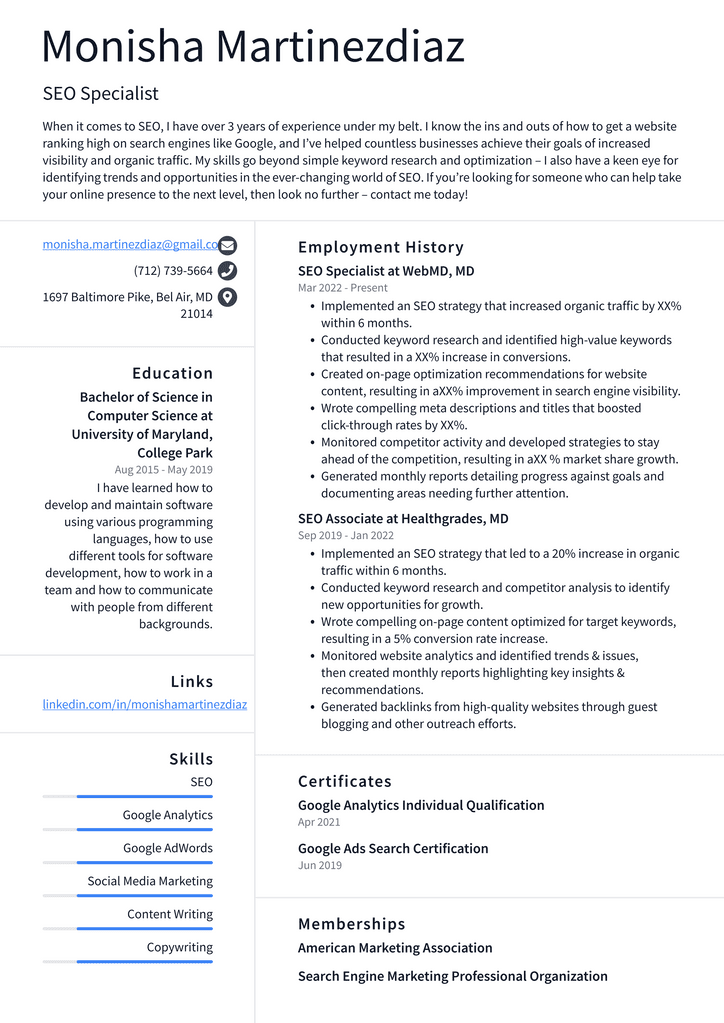
Download This SEO Specialist Resume as PDF
Marketing Specialist Resume Example
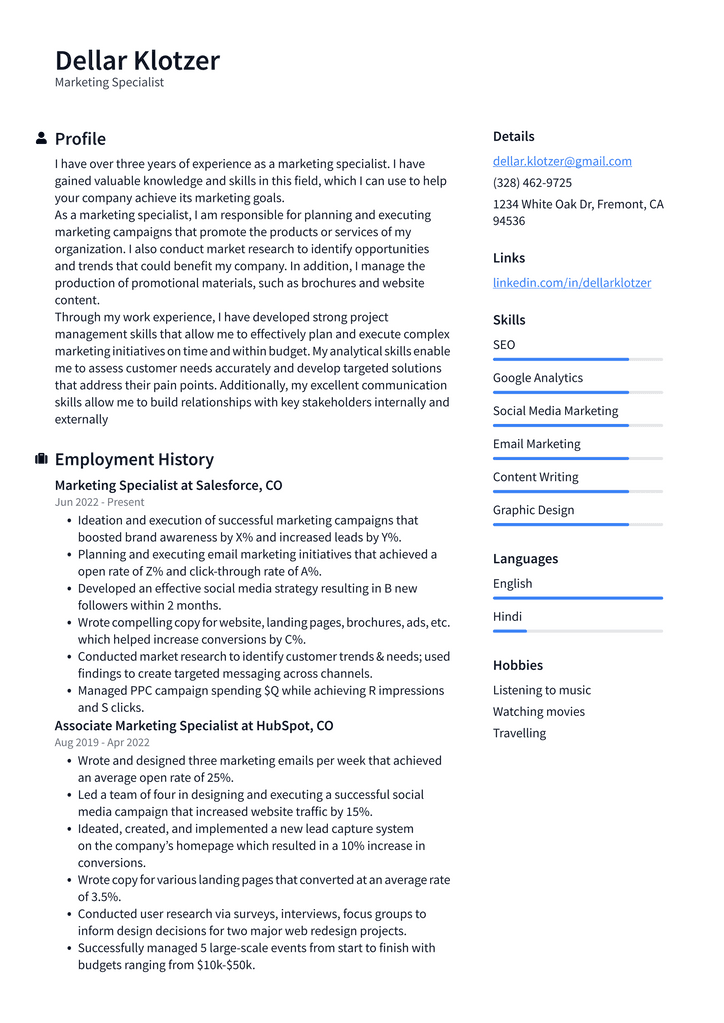
Download This Marketing Specialist Resume as PDF
What should be included in a blog writer’s resume?
A blog writer’s resume is a one-page document that provides a snapshot of your skills and experience. It is not a biography; you should not write it as if it were. Make your resume easy to read. Include only relevant information, and edit out anything not essential to your application. Choose a format that is easy to read and stands out from the crowd. When creating your resume, remember that employers are likely to scan your resume for essential details, such as your work history, education, and other information. Make it easy for them to find what you want them to see. Check for spelling and grammatical errors. Your resume is an advertisement for yourself. It should show your best attributes and why you are the best person for the job.
Which format should you use?
When writing your blog writer’s resume, it is essential to choose a format that is easy to read and visually appealing. Depending on your industry and job title, there are several resume formats that you can choose from. – Chronological: This is the most common resume format and is an excellent choice for someone who has a steady work history with no gaps. Be sure to include the most recent information at the top of your resume because that is what employers are most likely to see first. – Combination: This resume format combines the chronological and functional formats. You can include your work history but highlight your skills and achievements instead of work history. – Functional: If you have a spotty work history, have been out of the workforce for a while, or have a non-traditional career path, a functional resume may be a good choice for you. This format emphasizes your skills and abilities instead of your work history. – Hybrid: A combination of chronological and functional resumes are also available. This format gives you the best of both worlds and lets you highlight different aspects of your work history and skills. – Reverse Chronological: This format is best for someone who wants to emphasize accomplishments first, followed by work experience.
Resume checkpoints
– Make sure that the most critical information is at the top of your resume. Employers are unlikely to read your entire resume, so you must ensure that your name, contact information, education, and experience are at the top of the page. – Use active language. Avoid sentences that start with “I” or “My.” Use verbs to summarize your actions and accomplishments instead. This will make your resume more visually appealing and easier to read. – Keep your resume to one page. It may seem challenging, but your resume needs to stay focused and to the point.
Keywords and skills
One of the best ways to stand out from the crowd is to find out what employers are looking for and highlight those skills in your blog writer’s resume. First, list the top skills employers are looking for in candidates, especially those in your field. Then, highlight those skills and abilities in your resume and cover letter. For example, if an employer is looking for someone with experience creating SEO-friendly content, you can highlight your expertise in creating SEO-friendly content.
Professional experience
Most of your blog writer’s resumes should be dedicated to your work history. Include information about your previous positions, how long you worked for each employer, and the type of work you did. You can also discuss any awards, recognition, or skills that are relevant to the job you are applying for.
Education and training
Your education and training are essential aspects of your resume. They demonstrate your commitment to lifelong learning and sign that you are open to new ideas and opportunities. Include the name of the institution, the degree you received, and the date you graduated from each school. This is an excellent addition to your resume if you have completed professional training. Select training that is relevant to the job that you are applying for.
Concluding Words
Your blog writer’s resume is an opportunity to showcase your achievements and abilities. Ensure you include all the essential information and highlight the skills employers want to know. If you write a strong resume, you are more likely to get noticed and receive invitations to interview. Follow these tips to create a winning resume and get the attention that you deserve.